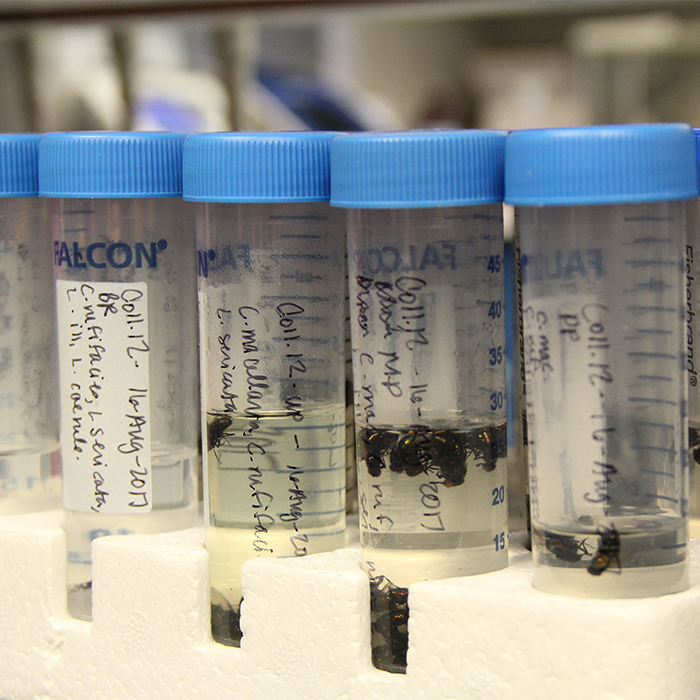Written By: Lauren Kay
INDIANAPOLIS -- Determining whether blow flies have consumed animal fecal material versus animal tissue has important implications for both human public health and animal conservation. A recent study by researchers in biology and chemistry at the School of Science at IUPUI shows how that determination can be made.
 "Imagine looking at farming operations that produce a lot of feces and being able to determine just how far from those farms flies are transmitting potentially harmful bacteria obtained from feces," said Christine J. Picard, assistant professor of biology and associate director of the School of Science's Investigative and Forensic Sciences program. "We can determine this using blow flies; they are very easy to catch, and now they can be easily analyzed for fecal bacteria, like E. coli, that may impact human public health."
"Imagine looking at farming operations that produce a lot of feces and being able to determine just how far from those farms flies are transmitting potentially harmful bacteria obtained from feces," said Christine J. Picard, assistant professor of biology and associate director of the School of Science's Investigative and Forensic Sciences program. "We can determine this using blow flies; they are very easy to catch, and now they can be easily analyzed for fecal bacteria, like E. coli, that may impact human public health."
The flies can now also be used to determine animal diversity and changes in that diversity. Conservationists can gain a better understanding of the number and distribution of animals in a certain environment by analyzing the fecal matter local flies are ingesting.
This newly accessible information also enables researchers to determine which animals are most prevalent in certain areas. Significantly, the study's findings provide conservationists with a powerful tool to detect species changes in an environment before animals become endangered.
"Chemical Assay for the Detection of Vertebrate Fecal Metabolites in Adult Blow Flies (Diptera: Calliphoridae)" is published in Environmental Entomology. The co-authors, all of whom are with IUPUI, are Charity G. Owings, Christine Skaggs, Winyu Sheriff, Nicholas Manicke and Christine J. Picard.
In the study, Picard and colleagues report that analysis by liquid chromatography-tandem mass spectrometry can allow researchers to detect fecal metabolites in the blow fly digestive tract. Prior to this study, when analyzing fly gut contents, scientists had been unable to determine whether flies had consumed vertebrate fecal matter or dead vertebrate tissue.